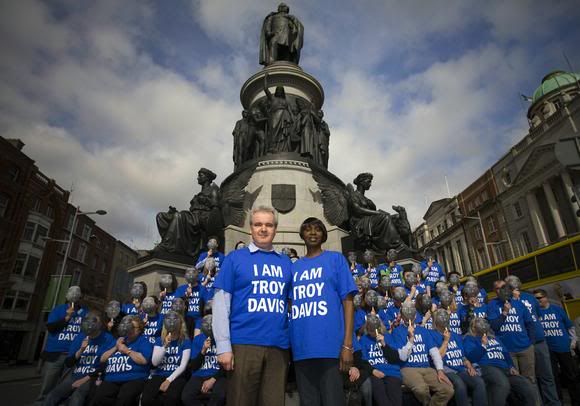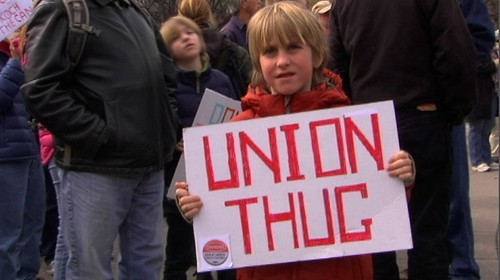 After the massive earthquake that struck Haiti on January 2010, the United Nations sent peace keeping troops from around the world to assist with keeping order during the recovery process, Unfortunately, some of those forces introduced a virulent strain of Cholera that was until October 2010 never seen in the Western Hemisphere. The faulty sanitation contaminated the Artibonite River, the longest and most important river in Haiti. The UN has refused to acknowledge its responsibility and has done little to help treat, prevent and control the disease.
After the massive earthquake that struck Haiti on January 2010, the United Nations sent peace keeping troops from around the world to assist with keeping order during the recovery process, Unfortunately, some of those forces introduced a virulent strain of Cholera that was until October 2010 never seen in the Western Hemisphere. The faulty sanitation contaminated the Artibonite River, the longest and most important river in Haiti. The UN has refused to acknowledge its responsibility and has done little to help treat, prevent and control the disease.
The enormity of the epidemic is in the numbers that are increasing as this is written. Since October 2010, over 500,000 cases have been reported, including 7,000 deaths. In a New York Times Editorial on May 12, it was reported that this year’s toll could effect another 200,000 to 250,000 people:
Doctors Without Borders said this month that the country is unprepared for this spring’s expected resurgence of the disease. Nearly half the aid organizations that had been working in the rural Artibonite region, where this epidemic began and 20 percent of cases have been reported, have left, the organization said. “Additionally, health centers are short of drugs and some staff have not been paid since January.”
It gets worse: the Centers for Disease Control and Prevention released a report this month that cholera in Haiti was evolving into two strains, suggesting the disease would become much harder to uproot and that people who had already gotten sick and recovered would be vulnerable again.
From Doctors Without Borders press release:
While Haiti’s Ministry of Health and Populations claims to be in control of the situation, health facilities in many regions of the country remain incapable of responding to the seasonal fluctuations of the cholera epidemic. The surveillance system, which is supposed to monitor the situation and raise the alarm, is still dysfunctional, MSF said. The number of people treated by MSF alone in the capital, Port-au-Prince, has quadrupled in less than a month, reaching 1,600 cases in April. The organization has increased treatment capacity in the city and in the town of Léogâne, and is preparing to open additional treatment sites in the country. Nearly 200,000 cholera cases were reported during the rainy season last year, between May and October. [..]
An MSF study in the Artibonite region, where approximately 20 percent of cholera cases have been reported, has revealed a clear reduction of cholera prevention measures since 2011. More than half of the organizations working in the region last year are now gone. Additionally, health centers are short of drugs and some staff have not been paid since January. [..]
The majority of Haitians do not have access to latrines, and obtaining clean water is a daily challenge. Of the half-million survivors of the January, 2010 earthquake who continue to live in camps, less than one third are provided with clean drinking water and only one percent recently received soap, according to a April 2012 investigation by Haiti’s National Directorate of Water Supply and Sanitation.
The Center for Disease Control estimates that the cost of adequate water and sanitation systems will run from $800 million to $1.1 billion. That money is available from funds that were pledged from other nations.
Awareness needs to be raised. The Institute for Justice and Democracy in Haiti, a human rights group, has sued the United Nations on behalf of 5,000 cholera victims and there is a Congressional letter to US Ambassador to the UN Susan Rice urging UN authorities to play a central role in addressing the epidemic.
Just Foreign Policy has set up a petition pressing the UN to take formal responsibility for the epidemic and do more to alleviate the cholera epidemic:
The United Nations bears heavy responsibility for the ongoing cholera epidemic in Haiti-it has become widely accepted that UN troops introduced the disease into the country via the UN’s faulty sanitation system. Even a UN panel has conceded this point. Yet, the UN has done little to treat, prevent, and control the disease. Rep. John Conyers’ office is circulating a letter to Amb. Rice urging UN authorities to play a central role in addressing the ongoing cholera crisis in Haiti.
The effort to contain this epidemic needs support. There are lives to be saved.
Note: The photo by Frederik Matte is from the Doctors Without Borders web site of patients affected by cholera receive treatment at an MSF cholera treatment center in Port-au-Prince.



 The best people America has to offer have been getting sick and dying from their heroic efforts at the World Trad Center. As you can see from this recent Daily News front page, Mike Enzi is not the only Republican to tell the 9/11 first responders and heroes to drop dead.
The best people America has to offer have been getting sick and dying from their heroic efforts at the World Trad Center. As you can see from this recent Daily News front page, Mike Enzi is not the only Republican to tell the 9/11 first responders and heroes to drop dead.
Recent Comments